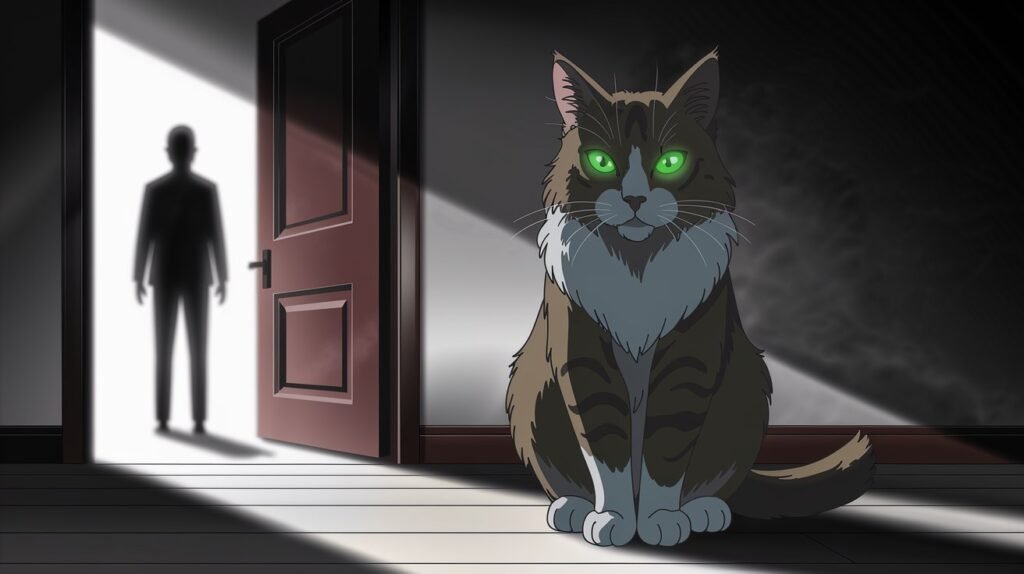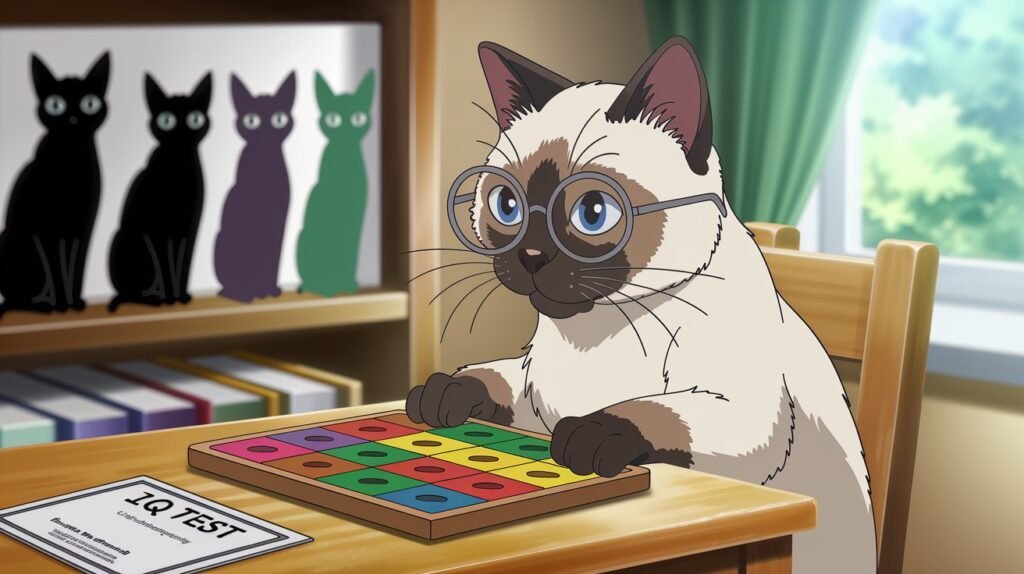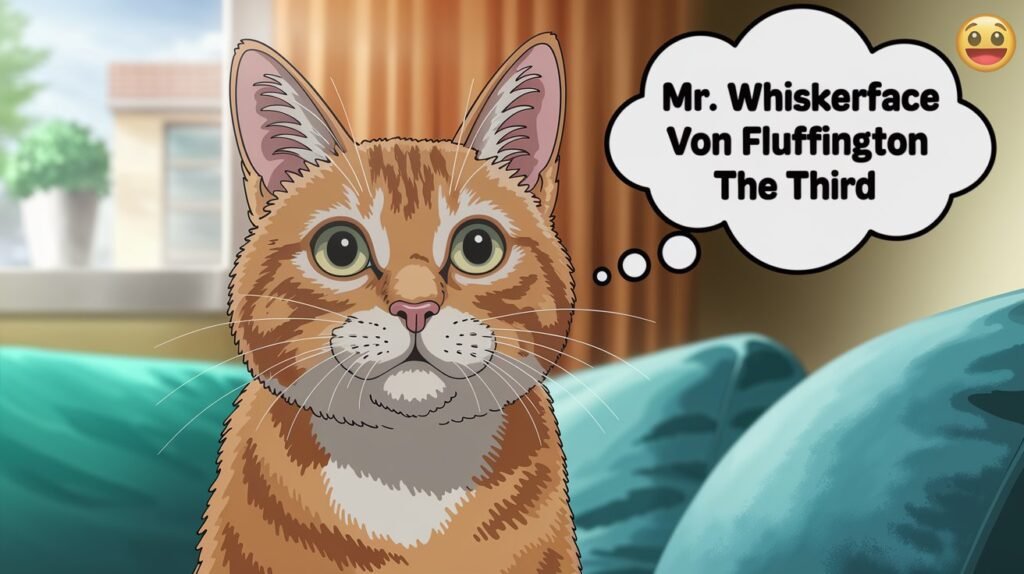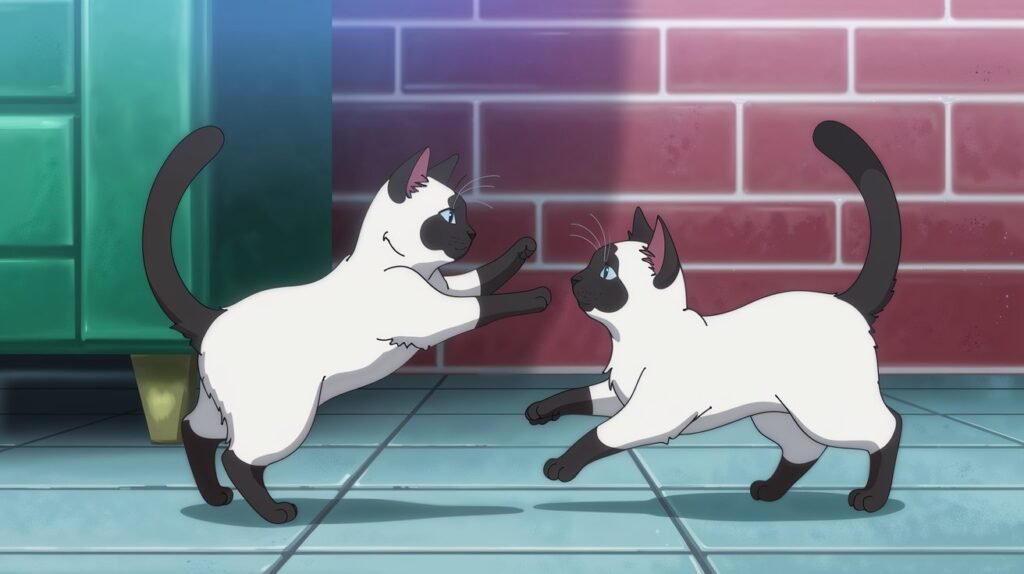Ever locked eyes with your cat across the room and wondered, “What is actually going through that mysterious feline mind?” As it turns out, the way your cat perceives you is far more fascinating than you might imagine—and it’s not as the all-powerful being who fills the food bowl.
The Big Revelation: You’re Just a Weird Cat
That’s right—scientific research suggests that your feline companion doesn’t see you as a different species. To your kitty, you’re simply a very large, somewhat awkward, surprisingly hairless cat.
No whiskers. No tail. Poor hunting skills. But still, in their eyes, just another cat.
This revelation explains so much about your relationship, doesn’t it? The reason your cat doesn’t always listen to your commands isn’t because they’re ignoring you—it’s because they don’t recognize you as the “boss.” In cat society, there isn’t a clear hierarchy like there is with dogs. Cats see themselves as your equal roommate, not your adoring subject.
The Social Structure: Equals in the Colony
When cats live in the wild, they often form loose colonies—groups of cats who live near each other, sometimes hunt together, and occasionally share in kitten-raising duties. These colonies don’t have a single leader; they’re communities of equals.
When your cat moved in with you (or rather, when you were graciously permitted to share their space), they mentally added you to their colony. You became family—a slightly odd-looking family member, but family nonetheless.
This explains why your cat:
- Brings you “gifts” (often in the form of toys or, unfortunately, dead creatures)
- Grooms you (those sandpaper licks are a gesture of affection)
- Attempts to sleep curled against you (maintaining colony warmth)
- Rubs against your legs (depositing their scent to mark you as part of their group)
These are all normal behaviors cats display toward other cats they consider part of their trusted circle.
Your Daily Schedule Through Feline Eyes
When you leave for work each morning, your cat doesn’t understand concepts like “jobs” or “income.” Instead, they likely assume you’re heading out for the day’s hunt. This explains the curious or expectant look they give when you return home—”Where’s the prey? Did the hunt go well?”
Bringing home groceries might actually align perfectly with their expectations. “Ah yes, the strange-looking cat has returned with provisions. Acceptable.”
Similarly, when your cat wakes you at an ungodly early hour by pouncing on your face or knocking items off your nightstand, they’re not being deliberately annoying. In their mind, they’re simply initiating group hunting time during the ideal hunting hours of dawn and dusk. Why are you being so lazy when there are imaginary mice to chase?
The Language Barrier
Perhaps the most endearing misconception in this cross-species relationship is your cat’s patience with your obvious communication deficiencies.
Your cat meows at you far more than they would at other cats. Adult cats rarely meow to each other—this vocalization is generally reserved for kittens communicating with their mothers. Yet with humans, cats develop elaborate meowing vocabularies.
Why? Because they’ve learned that’s how to communicate with the vocally-challenged big cats they live with. Your cat has essentially created a special language just for you. They’re meeting you halfway in the communication department, which is quite generous considering cats aren’t known for their compromising nature.
Earning Respect in the Feline World
So if your cat sees you as an equal rather than an authority figure, how do you earn their respect and affection?
In the cat world, respect isn’t demanded—it’s earned through actions and consistency. Here’s how to be seen as a worthy colony member in your cat’s eyes:
Provide reliable resources: Regular feeding times, clean water, and a clean litter box show you’re a dependable provider.
Respect boundaries: Nothing earns a cat’s disdain faster than ignoring their personal space. Let them come to you for affection.
Engage in “hunting” together: Interactive play sessions with wand toys or laser pointers allow you to “hunt” cooperatively, building bonds.
Maintain predictable routines: Cats feel secure with consistency. Regular schedules for feeding, play, and sleep help them feel safe.
Communicate in ways they understand: Slow blinks, offering your hand to sniff before petting, and speaking in gentle tones all communicate respect in cat language.
The Ultimate Compliment: You’re Family
When your cat chooses to curl up in your lap, sleep on your bed, or rub their face against yours, they’re paying you the highest compliment in feline culture—they’re acknowledging you as family.
Despite your strange appearance, peculiar habits, and regrettable inability to land on your feet when you fall, your cat has accepted you into their inner circle. They’ve decided that you, the big bumbling cat without proper fur, are worthy of their affection.
And considering how discerning cats are known to be, that’s quite the honor.
The “Speak Cat” Challenge: A 3-Day Communication Experiment
Ready to deepen your bond by communicating more effectively with your feline friend? Try this three-day challenge to better understand and connect with your cat:
Day 1: The Observer Spend 15 minutes simply watching your cat without interrupting them. Note their ear positions, tail movements, eye dilation, and body posture in different situations. Create a simple journal of these observations to start recognizing their personal body language patterns.
Day 2: The Communicator Practice three cat communication techniques:
- The slow blink (known as a “cat kiss”)
- Offering your hand at their level before attempting to pet
- Mimicking their vocalizations when they meow at you
Note their responses to each technique. Do they reciprocate the slow blink? Do they seem more relaxed when you let them approach first?
Day 3: The Colony Member Create a ritual that aligns with natural cat behavior:
- Set aside 10 minutes for a “hunting” session with an interactive toy
- Follow it with a small treat
- Then settle into a quiet space where your cat can choose to join you for rest
This mimics the natural rhythm of hunt, eat, groom, sleep that cats follow and positions you as a fellow colony member who understands the proper order of things.
After completing the challenge, you may notice subtle changes in how your cat interacts with you. Perhaps they’ll seek you out more often, or you’ll start recognizing communication signals you previously missed.
Remember, in the eyes of your cat, you’ll always be that weird-looking, tailless feline who can’t quite groom properly and makes strange noises. But with understanding and respect for their perspective, you can become their favorite weird cat in the whole world.
And really, isn’t that what we’re all aiming for?







